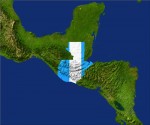A renewed CSR strategy for the Canadian mining sector was announced by the Government of Canada on November 14, 2014 that will create consequences for companies who refuse to adhere to endorsed CSR best practices and dispute resolution processes. See Canadian Mining Journal.
Translate Lex Sustineo
Showing posts with label Equator Principles. Show all posts
Showing posts with label Equator Principles. Show all posts
Tuesday, January 6, 2015
Tuesday, February 11, 2014
The Challenges of Running Responsible Supply Chains
NYT blog post by Laura D'Andrea Tyson discussing some of the leading initiatives and challenges for the promotion of labour and health and safety standards through supply chains. Of particular interest to those grappling with the application of the Guiding Principles on Business and Human Rights in the supply chain context.
Tuesday, October 1, 2013
Equator Principles Financings – Mitigating Potential Legal Risks for Canadian Banks
 Alison FitzGerald and Michael Torrance of Norton Rose Fulbright Canada discuss the legal risks for Canadian Financial Institutions associated with the recently revised Equator Principles (“EP”), whose third iteration (“EP III”) took effect on June 4th, 2013. The new EP appears to have caused little stir in the Canadian financial services sector or the legal community that serves it. The muted reaction might lead one to believe that EP III presents no significant legal risks for financial institutions (“FIs”). Alternatively, it may suggest that many of the risks inherent to the EP are poorly understood. This article looks at the EP framework and innovations to this framework adopted in EP III. We consider the potential legal risks presented by EP III for Canadian FIs and their clients, and offer some simple strategies to mitigate these risks.
Alison FitzGerald and Michael Torrance of Norton Rose Fulbright Canada discuss the legal risks for Canadian Financial Institutions associated with the recently revised Equator Principles (“EP”), whose third iteration (“EP III”) took effect on June 4th, 2013. The new EP appears to have caused little stir in the Canadian financial services sector or the legal community that serves it. The muted reaction might lead one to believe that EP III presents no significant legal risks for financial institutions (“FIs”). Alternatively, it may suggest that many of the risks inherent to the EP are poorly understood. This article looks at the EP framework and innovations to this framework adopted in EP III. We consider the potential legal risks presented by EP III for Canadian FIs and their clients, and offer some simple strategies to mitigate these risks.Monday, September 16, 2013
Escalating Social Risk for Mining Sector
 Canada's CSR Counsellor for the Extractive Sector, Marketa Evans, writes in the Canadian Mining Journal about social risks affecting the mining industry globally. In the management of social risk, including the risks of community conflicts and social opposition, Ms. Evans states that the industry has so far taken more limited measures than have been taken for environmental risks, even though increasing evidence suggests that social risk constitutes a material risk to mining operations. Full article can be read here.
Canada's CSR Counsellor for the Extractive Sector, Marketa Evans, writes in the Canadian Mining Journal about social risks affecting the mining industry globally. In the management of social risk, including the risks of community conflicts and social opposition, Ms. Evans states that the industry has so far taken more limited measures than have been taken for environmental risks, even though increasing evidence suggests that social risk constitutes a material risk to mining operations. Full article can be read here.
Friday, September 13, 2013
New Case May Affect Whether Equator Principles Adoption Creates a Global Duty of Care on Canadian Banks
 The recently revised Equator Principles (EP), whose third iteration (“EP III”) took effect on June 4th, 2013, appears to have caused little stir in the Canadian banking legal counsel community. Many legal counsel have never even heard of the EP, even those who structure the deals that the EP apply to. The muted reaction might lead one to believe that the new EP or its predecessors present no significant legal risks for the industry. Alternatively, it may suggest that many of the risks inherent to the EP are poorly understood and risk becoming the next “black swan” that catches legal counsel flat-footed. A case currently being considered in an Ontario court, Choc v. Hudbay 2013 ONSC 1414 could have bearing on those questions and affect the potential legal risks of EPFI and is worth monitoring by banks and their counsel.
The recently revised Equator Principles (EP), whose third iteration (“EP III”) took effect on June 4th, 2013, appears to have caused little stir in the Canadian banking legal counsel community. Many legal counsel have never even heard of the EP, even those who structure the deals that the EP apply to. The muted reaction might lead one to believe that the new EP or its predecessors present no significant legal risks for the industry. Alternatively, it may suggest that many of the risks inherent to the EP are poorly understood and risk becoming the next “black swan” that catches legal counsel flat-footed. A case currently being considered in an Ontario court, Choc v. Hudbay 2013 ONSC 1414 could have bearing on those questions and affect the potential legal risks of EPFI and is worth monitoring by banks and their counsel.Consultants to Banking Industry Come Under Scrutiny
 The New York Times reports that regulatory scrutiny of the consulting industry is intensifying. The US Government is investigating the consulting industry which, as one government regulator says, has been infected by an ‘I’ll scratch your back if you scratch mine’ culture and a stunning lack of independence.” A senior federal banking regulator said he was exploring new ways to curb the use of consultants by the banking industry. These developments should give Equator Principles Financial Institutions (EPFI) pause when deciding whether to work with consultants to advise on Equator Principles compliance. As we have discussed, no legal professional privilege attaches to the advice of consultants, which could be very valuable in the event of a regulatory investigation.
The New York Times reports that regulatory scrutiny of the consulting industry is intensifying. The US Government is investigating the consulting industry which, as one government regulator says, has been infected by an ‘I’ll scratch your back if you scratch mine’ culture and a stunning lack of independence.” A senior federal banking regulator said he was exploring new ways to curb the use of consultants by the banking industry. These developments should give Equator Principles Financial Institutions (EPFI) pause when deciding whether to work with consultants to advise on Equator Principles compliance. As we have discussed, no legal professional privilege attaches to the advice of consultants, which could be very valuable in the event of a regulatory investigation.
Tuesday, September 10, 2013
Corporate liability for human rights violations in Canada?
 Can a Canadian parent company with a subsidiary operating in a foreign jurisdiction be liable for human rights
violations in the foreign jurisdiction that occur at the level of the subsidiary? Janne Duncan, Michael Torrance and Janet Howard discuss a recent decision in which a Canadian court has
allowed this issue to proceed to trial. Whatever the outcome at trial where issues of liability will ultimately be determined, one thing is clear: international public expectations are changing, and directors and officers of Canadian companies need to be aware of the potential risk of claims by foreign plaintiffs seeking redress for alleged harm committed beyond Canada’s borders.
Can a Canadian parent company with a subsidiary operating in a foreign jurisdiction be liable for human rights
violations in the foreign jurisdiction that occur at the level of the subsidiary? Janne Duncan, Michael Torrance and Janet Howard discuss a recent decision in which a Canadian court has
allowed this issue to proceed to trial. Whatever the outcome at trial where issues of liability will ultimately be determined, one thing is clear: international public expectations are changing, and directors and officers of Canadian companies need to be aware of the potential risk of claims by foreign plaintiffs seeking redress for alleged harm committed beyond Canada’s borders.
Labels:
ATS,
CSR,
Equator Principles,
fpic,
free prior and informed consent,
global compact;,
human rights,
IFC Performance Standards,
indigenous rights,
labour,
mining,
project finance,
stakeholder
Monday, September 9, 2013
UN Global Compact: Canadian launch of the Guiding Principles
 Janne Duncan writes about the the UN Global Compact (UNGC) Canadian launch this year and how it fits into related sustainability initiatives of the Government of Canada.
Janne Duncan writes about the the UN Global Compact (UNGC) Canadian launch this year and how it fits into related sustainability initiatives of the Government of Canada. Wednesday, September 4, 2013
Export-Import Bank Sued by Environmental Groups for Coal Export Loan Guarantee
 Columbia Law School's Climate Law Blog discusses a recent lawsuit by the NGO Earthjustice against US Ex-Im, regarding the Defendant's alleged failure to conduct an environmental assessment for a coal production related loan.
Columbia Law School's Climate Law Blog discusses a recent lawsuit by the NGO Earthjustice against US Ex-Im, regarding the Defendant's alleged failure to conduct an environmental assessment for a coal production related loan.
Friday, August 16, 2013
Increased Risks of Liability for International Human Rights Claims Brought in Canada
 On July 22, 2013, the Ontario Superior Court of Justice in Choc v. Hudbay Minerals Inc. 2013 ONSC 1414 (the “Hudbay Decision”) dismissed a preliminary motion of the Defendants, Canadian mining company, Hudbay Minerals (Hudbay), thereby allowing the lawsuit against the company to proceed. The claim, which is yet to be proven, alleges Hudbay is responsible for human rights abuses allegedly committed by mine security personnel at Hudbay’s wholly owned and controlled subsidiary, Compania Guatemala de Niquel (CGN), in eastern Guatemala.
On July 22, 2013, the Ontario Superior Court of Justice in Choc v. Hudbay Minerals Inc. 2013 ONSC 1414 (the “Hudbay Decision”) dismissed a preliminary motion of the Defendants, Canadian mining company, Hudbay Minerals (Hudbay), thereby allowing the lawsuit against the company to proceed. The claim, which is yet to be proven, alleges Hudbay is responsible for human rights abuses allegedly committed by mine security personnel at Hudbay’s wholly owned and controlled subsidiary, Compania Guatemala de Niquel (CGN), in eastern Guatemala.
As noted, the matter has yet to proceed to trial and none of the allegations raised have yet been proven. That being so, this case has important implications for Canadian businesses operating abroad. In essence, the finding means that a complaint
Monday, July 29, 2013
New Sustainability Rules Requiring Legal Strategy Rethink
 This article considers the legal implications of new rules of the recently revised Equator Principles (EP), whose third iteration (“EP III”) took effect on May 14th, 2013. The Equator Principles is a framework agreed upon by 79 global financial institutions to identify, assess and manage environmental and social risk in certain types of financings around the world. The goal is to provide an overview of the EP III with discussion of steps that counsel to EP Financial Institutions (EPFI) might consider to minimize potential legal risks and update contractual documentation.
This article considers the legal implications of new rules of the recently revised Equator Principles (EP), whose third iteration (“EP III”) took effect on May 14th, 2013. The Equator Principles is a framework agreed upon by 79 global financial institutions to identify, assess and manage environmental and social risk in certain types of financings around the world. The goal is to provide an overview of the EP III with discussion of steps that counsel to EP Financial Institutions (EPFI) might consider to minimize potential legal risks and update contractual documentation.Wednesday, July 10, 2013
Human Rights Due Diligence in International Finance
 Revisions to the Equator Principles (EP) have created new requirements for businesses to conduct human rights due diligence in order to qualify for financing from 79 of the world’s largest financial institutions. The EP apply globally to all project financing with a value of over $10 million and to certain types of corporate loans, bridge loans and project finance advisory services. This development brings the importance of human rights due diligence beyond reputational risk management and ties it directly to access to capital for many companies. It also significantly increases the significance of human rights considerations for the financial industry.
Revisions to the Equator Principles (EP) have created new requirements for businesses to conduct human rights due diligence in order to qualify for financing from 79 of the world’s largest financial institutions. The EP apply globally to all project financing with a value of over $10 million and to certain types of corporate loans, bridge loans and project finance advisory services. This development brings the importance of human rights due diligence beyond reputational risk management and ties it directly to access to capital for many companies. It also significantly increases the significance of human rights considerations for the financial industry.Thursday, May 30, 2013
Managing Lender Liability in Equator Principles Implementation - Regulatory Offences
 The Equator Principles III ("EP III") states that: "As financiers and advisors, we work in partnership with our clients to identify, assess, and manage environmental and social risks and impacts in a structured way, on an ongoing basis." It is well known that lender liability for environmental and social matters may arise from operational or managerial control by a lender over a project, or where a lender aids and abets regulatory offences of their borrowers. This article considers the risks associated with regulatory prosecutions of an Equator Principles Financial Institution (EPFI), acting as auditors and possibly co-managers of environmental and social risk management of their borrowers. We also consider management strategies, including the role of legal professional privilege. This article is part three of a three part look at managing lender liability in EP implementation. The first article looked at post-loan legacy liabilities, and the second at third party beneficiary rights in the EP context.
The Equator Principles III ("EP III") states that: "As financiers and advisors, we work in partnership with our clients to identify, assess, and manage environmental and social risks and impacts in a structured way, on an ongoing basis." It is well known that lender liability for environmental and social matters may arise from operational or managerial control by a lender over a project, or where a lender aids and abets regulatory offences of their borrowers. This article considers the risks associated with regulatory prosecutions of an Equator Principles Financial Institution (EPFI), acting as auditors and possibly co-managers of environmental and social risk management of their borrowers. We also consider management strategies, including the role of legal professional privilege. This article is part three of a three part look at managing lender liability in EP implementation. The first article looked at post-loan legacy liabilities, and the second at third party beneficiary rights in the EP context.Wednesday, May 29, 2013
Managing Lender Liability in Equator Principles Implementation - Third Party Beneficiary Rights in Contract Law
 I read an interesting and provocative journal article by Marissa Marco, published in the Fordham International Law Journal in 2011, entitled "Accountability in International Project Finance: The Equator Principles and the Creation of Third-Party Beneficiary Status for Project-Affected Communities". The article discusses the law on third party beneficiary rights under US contract law and considers whether the provisions of the Equator Principles (EP) relating to Affected Communities might create enforceable rights for those communities under those principles.
I read an interesting and provocative journal article by Marissa Marco, published in the Fordham International Law Journal in 2011, entitled "Accountability in International Project Finance: The Equator Principles and the Creation of Third-Party Beneficiary Status for Project-Affected Communities". The article discusses the law on third party beneficiary rights under US contract law and considers whether the provisions of the Equator Principles (EP) relating to Affected Communities might create enforceable rights for those communities under those principles.This article will discuss this issue and suggest a risk management strategy for EP Financial Institutions (EPFI - i.e. EP signatories) addressing and managing such risks in Equator Principles implementation.
Managing Lender Liability in Equator Principles Implementation - Legacy Liabilities (Post-Loan following Repayment or Default)
 This post will consider a rather controversial topic - the possible existence of liabilities linked to Equator Principles (EP) implementation that may extend beyond the life of the underlying loan or activity to which the EP were originally applied.
This post will consider a rather controversial topic - the possible existence of liabilities linked to Equator Principles (EP) implementation that may extend beyond the life of the underlying loan or activity to which the EP were originally applied.The purpose will be to consider whether there are plausible legacy liability risks affecting EP implementation and, if so, how such risks could be managed by Equator Principles Financial Institutions (EPFI) before they materialize.
Please note that, as this is a blog post, the analysis is high level and intended to raise points for reflection and thought rather than to be an exhaustive review of the law on these subjects. Hopefully it raises some useful considerations and I am very much open to comment (and criticism) of the topic and ideas put forward. The goal is to generate a dialogue that may help push the boundaries of our understanding of these issues.
Thursday, May 23, 2013
New York Times: U.S. Retailers See Big Risk in Safety Plan for Factories in Bangladesh
 The New York Times reports that American retailers remain sharply opposed to joining an international
plan to improve safety conditions at garment factories in Bangladesh as
their European counterparts and consumer and labor groups dismiss the
companies’ concerns about legal liability. Full article here.
The New York Times reports that American retailers remain sharply opposed to joining an international
plan to improve safety conditions at garment factories in Bangladesh as
their European counterparts and consumer and labor groups dismiss the
companies’ concerns about legal liability. Full article here.Thursday, May 16, 2013
Final Equator Principles III and the August 2012 Draft - What are the differences?
Some of the main differences are:
1. Elimination of the High Income OECD threshold for application of the IFC Performance Standards in the final version. Now there is a concept of "Designated Countries" which basically has the same effect but is not based on high income status;
2. Only a summary of an ESIA rather than full disclosure of the ESIA and ESMP is required in the final version;
3. In the final version only a "majority" of a corporate loan meeting the appropriate thresholds must be tied to a project, that caveat wasn't in the draft;
4. New emphasis in principle 3 that compliance with relevant host country laws, regulations and permits are to be address "in the first instance" in Assessments;
5. Some changes to Appendix B setting out EPFI reporting requirements;
6. More specific reference to the Guiding Principles on Business and Human Rights due diligence requirement.
1. Elimination of the High Income OECD threshold for application of the IFC Performance Standards in the final version. Now there is a concept of "Designated Countries" which basically has the same effect but is not based on high income status;
2. Only a summary of an ESIA rather than full disclosure of the ESIA and ESMP is required in the final version;
3. In the final version only a "majority" of a corporate loan meeting the appropriate thresholds must be tied to a project, that caveat wasn't in the draft;
4. New emphasis in principle 3 that compliance with relevant host country laws, regulations and permits are to be address "in the first instance" in Assessments;
5. Some changes to Appendix B setting out EPFI reporting requirements;
6. More specific reference to the Guiding Principles on Business and Human Rights due diligence requirement.
Update: Equator Principles III is approved and launched - new trends and a strategy rethink
 The Equator Principles (EP) is an agreement amongst 76 global financial institutions (known as EP Financial Institutions or "EPFI") to apply environmental and social standards to certain investment decisions. The third iteration of the EP (EP III) was released on May 14, 2013 and will take effect (with certain transition allowances) on June 4, 2013.
The Equator Principles (EP) is an agreement amongst 76 global financial institutions (known as EP Financial Institutions or "EPFI") to apply environmental and social standards to certain investment decisions. The third iteration of the EP (EP III) was released on May 14, 2013 and will take effect (with certain transition allowances) on June 4, 2013.
The release of EP III follows a major revision of the IFC Performance Standards on Environmental & Social Sustainability in 2012 (IFC Performance Standards), a set of guidelines that is incorporated by reference into the EP framework. Together, these changes mark an important evolution in best practice in environmental and social risk management of particular importance for both bankers and those seeking access to capital.
This article reviews the new ground rules of environmental and social risk management and considers some new trends that may begin to emerge. We also consider what risks and opportunities arise from these developments that should be considered by both financiers and those seeking finance who must comply with these frameworks to meet their business goals.
Sunday, May 5, 2013
Anna Kirkpatrick: Kiobel v Shell - What the decision says and what it left out
Anna Kirkpatrick of Norton Rose in London England discusses the recent US Supreme Court decision in Kiobel v. Shell, and the implications of the decision for business and human rights expectations and litigation in the United States.
This decision is particularly of interest for Equator Principles (EP) financings in light of the human rights due diligence requirements of the new IFC Performance Standards on Environmental and Social Sustainability, incorporated by reference into the EP.
Read on for Anna's discussion of what the decision says and what remains to be determined in US law.
This decision is particularly of interest for Equator Principles (EP) financings in light of the human rights due diligence requirements of the new IFC Performance Standards on Environmental and Social Sustainability, incorporated by reference into the EP.
Read on for Anna's discussion of what the decision says and what remains to be determined in US law.
Thursday, May 2, 2013
Reflections on Migrant Labour in China - Application of IFC Performance Standards and Equator Principles
Subscribe to:
Posts (Atom)


